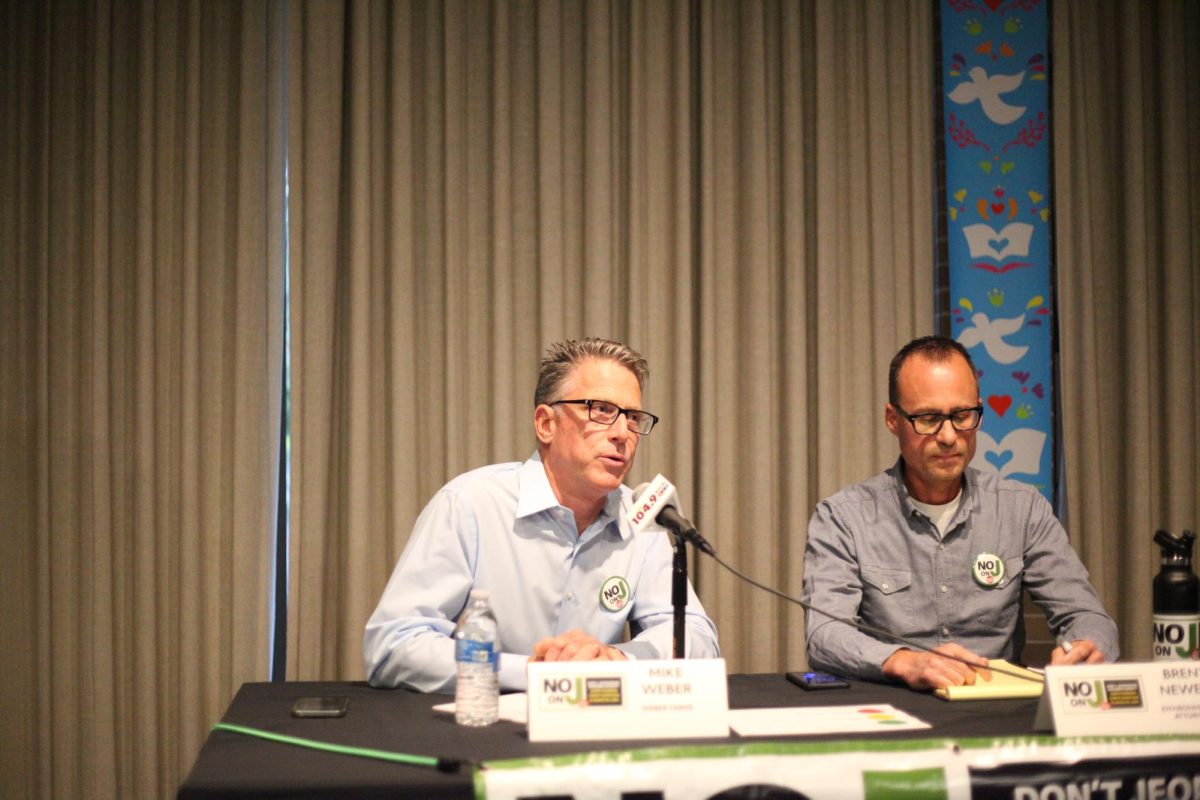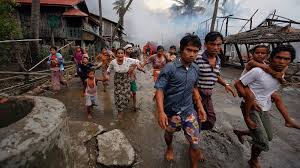Columnist Alice Tennigkeit
An entire group of people, the Rohingya, are facing a 21st century Southeast Asian holocaust, yet Myanmar officials refuse to acknowledge the Rohingya people and the ongoing atrocity they face. UN Secretary General António Guterres calls the conflict, “the world’s fastest developing refugee emergency and a humanitarian and human rights nightmare.”
Terminology matters more now than ever before, especially for the dominantly Muslim Rohingya people living in Myanmar. If an entire country refuses to recognize a population living within its borders, then is it really a surprise that they also refuse to admit to the current wave of ethnic cleansing? Myanmar government officials blatantly refer to the Rohingya as Bengalis, foreigners, and even terrorists. A period of genocide is undoubtedly unfolding.
While any term related to mass murder is an emotionally charged term, that certainly doesn’t make it right for an entire country, and the rest of the world, to ignore or downplay the mass extermination occurring in Myanmar.
According to The Guardian, years of government oppression and prejudice towards the Rohingya came to a head on Aug. 25 in the state of Rakhine when Rohingyan demonstrators attacked Myanmar army posts. Since late August, the counterattacks on the Rohingyan have been brutally devastating.
The Myanmar military has annihilated more than 200 Muslim Rohingya villages; these villages are left with no survivors and nothing but smoke trails from reminiscent dwellings. Refugees who have been lucky enough to escape to Bangladesh relay abominably eerie stories of rape and mass murder.
The UN has reported a growing number of refugees who have traveled great distances by foot that find themselves detained at the Bangladesh border only for officials to return them to Myanmar, often by force.
According to the media company Al Jazeera, based in Doha, Qatar, over the past few years Bangladesh had not readily welcomed Rohingyan refugees, saying they “illegally infiltrated.” Now that over 400,000 refugees have fled the border like a Southeast Asian Trail of Tears, the bleak situation seems even more grim.
Thousands of refugees have made camp near the Myanmar and Bangladesh borders, where officials allow only children near the border lines to gather fresh water. These Rohingya refugees struggle to maintain hope as they’re cramped together in filthy ghetto-like encampments soaked in mud. On Sept. 29, U Thaung Tun, a Myanmar security advisor, reported to the UN Security Council that, “There is no ethnic cleansing and no genocide of Rohingya.” Tun lacks a genuine explanation why thousands of the Rohingya are fleeing Myanmar; he simply blames “terrorists” for the ongoing exodus.
Reporter Aamna Mohdin of Quartz Media argues the Rohingya genocide desensitization is similar to that of other mass murders, such as in Rwanda in 1922. The Nazi holocaust and the genocide in Rwanda both stemmed from the process of devaluing the lives of entire groups of people by using charged language.
Similarly, Mohdin claims de facto leader Aung San Suu Kyi, and other prominent leaders in Myanmar government and military positions are to blame for the Rohingya’s dehumanization as they refer to the Muslim group as Bengalis, foreigners, and terrorists.
Throughout history, we’ve seen the persuasive powers of language outweigh humanity’s cries for help, resulting in ghastly efforts of ethnic cleansing. Let us listen to the Rohingya refugees in a country where their voices can be heard.



































